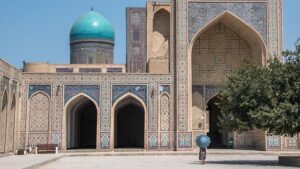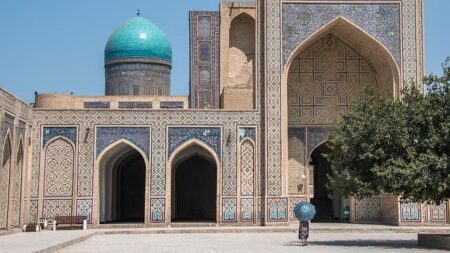Nationwide Progressive Uprising Against Authoritarian Military Displays
In cities across the United States, a wave of progressive activists has surged forward with coordinated No Kings Day protests, directly confronting the Trump administration’s plan for a military parade. These gatherings, alive with impassioned speeches and striking visuals, reject what participants describe as an authoritarian spectacle that glorifies militarism at the expense of democratic principles. Protesters advocate for redirecting focus toward social equity, community welfare, and justice rather than extravagant demonstrations of power.
Central demands voiced during these events include:
- Preserving funding for social programs over military budgets
- Condemning government excess amid economic challenges
- Protecting civil rights against rising authoritarian tendencies
- Encouraging diplomacy and global cooperation
Many protests have incorporated artistic expressions and open forums, fostering inclusive dialogue and grassroots enthusiasm. Organizers emphasize sustained advocacy aimed at influencing policymakers to prioritize meaningful governance over theatrical displays.
Understanding the Political Symbolism Behind No Kings Day Protests
The No Kings Day movement stands as a powerful emblem of resistance against the perceived resurgence of authoritarian theatrics in American politics. Activists rally against the elevation of singular leadership and militarized ceremonies, viewing these as antithetical to the nation’s democratic ethos. By uniting under this banner, protesters assert a firm rejection of hierarchical dominance and advocate for governance rooted in equality and transparency.
Core themes emphasized by the movement include:
- Rejecting the militarization of civic events
- Championing civilian oversight over symbolic autocratic power
- Demanding openness and responsibility from leaders
- Safeguarding the republic’s foundational democratic ideals without undue glorification
The timing and widespread nature of these protests reflect growing unease about the direction of political leadership and national identity. Beyond opposing a single event or figure, the movement serves as a reminder of the fragile balance between authority and freedom in the United States.
| Dimension | Impact |
|---|---|
| Symbolic Defiance | Challenges authoritarian imagery |
| Grassroots Engagement | Amplifies diverse progressive voices |
| National Discourse | Stimulates debate on democracy’s evolution |
Military Parades and Political Resistance in Modern America
Across the nation, progressive groups have organized No Kings Day protests to counter the spectacle of military parades linked to former President Donald Trump. These demonstrations seek to disrupt narratives that fuse political authority with martial grandeur, warning against the normalization of authoritarian symbolism. Protesters carry placards and chant slogans promoting peace, transparency, and a clear division between governmental power and military pageantry.
Key messages emphasized during these rallies include:
- Opposition to the militarization of public ceremonies and the dangers of normalizing authoritarian imagery.
- Advocacy for prioritizing social justice initiatives over costly military displays.
- Encouragement of democratic participation and resistance to personality cults often associated with such events.
| City | Approximate Number of Protesters | Main Rallying Cry |
|---|---|---|
| Los Angeles | 1,500+ | Power to the People, Not Parades |
| Washington D.C. | 2,300+ | Democracy Before Militarism |
| Seattle | 900+ | Peace Over Pageantry |
Maintaining Activist Energy Through Strategic Public Engagement
Keeping progressive activism vibrant demands a comprehensive strategy that blends visibility, clear messaging, and inclusive community involvement. Activists stress the importance of addressing interconnected issues such as economic disparity, racial equity, and environmental justice. By combining educational initiatives and digital outreach with public demonstrations, movements can sustain momentum and expand their reach. This layered approach ensures activism evolves beyond immediate reactions into a sustained push for systemic change.
Building durable networks is also critical for ongoing impact. Progressives are harnessing grassroots organizing, social media platforms, and collaborations with local groups to foster continuous dialogue and coordinated action. Key tactics include:
- Decentralizing leadership to empower community voices
- Establishing accessible channels for feedback and cooperation
- Crafting targeted communications tailored to diverse audiences
- Aligning protest themes with current policy debates and legislation
| Approach | Objective | Anticipated Result |
|---|---|---|
| Decentralized Leadership | Empower local activists | Long-term grassroots engagement |
| Targeted Messaging | Connect with varied demographics | Expanded movement influence |
| Community Workshops | Educate and mobilize participants | Informed and active supporters |
Final Thoughts on No Kings Day and America’s Political Future
As thousands gathered nationwide to observe No Kings Day, their collective voice underscored a profound opposition to authoritarian symbolism and militaristic spectacle. While proponents argue that military parades celebrate national pride, many progressives perceive them as antithetical to democratic ideals and a dangerous flirtation with autocratic imagery. This ongoing debate reveals deep fissures in American society regarding leadership, historical narrative, and the country’s future path. As these contrasting perspectives continue to unfold in public arenas, the discourse on power, representation, and democracy remains critically important.







